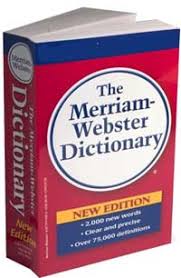It is estimated there are over 4,200 different religions in the world today; some Christians believe there are as many as 30,000 different Christian Protestant branches alone!
With such an extensive figure, it would literally take decades, if not centuries, to thoroughly research such vast information!
With such an extensive figure, it would literally take decades, if not centuries, to thoroughly research such vast information!
The mere problem in defining what "religion" means has produced a large ordination of scholarly works that are oftentimes in conflict with one another.
Some believe religion is merely a man-made vocation, brought about by the politics of mankind; while others think religion is a necessary means of connecting with a higher power.
However, the essence of religion can be understood only by following the history of various religions of mankind and comparing them. In doing so, one may find the common denominator of them all.
Some believe religion is merely a man-made vocation, brought about by the politics of mankind; while others think religion is a necessary means of connecting with a higher power.
However, the essence of religion can be understood only by following the history of various religions of mankind and comparing them. In doing so, one may find the common denominator of them all.
The difference between religion and theology is that religion is something subjective (personal) and limited through the thoughts of the individual about one or many supreme beings. Theology, on the other hand, represents an objective (impersonal) system in which beliefs and ideas are defined.
The common element contained within any religion is based upon the belief in one god, many gods, or no god at all. Such elements fall into the following categories:
- Monotheism - belief in one god.
- Polytheism - belief in many gods.
- Henotheism - belief in one god superior to all others.
- Deism - belief in one god, but believes in the rejection of God's supernatural powers and being indifferent to mankind.
- Atheism - belief there is no god or gods.
It has been suggested by many scholars and theologians, that all forms of religion are historically connected and related to each other; however, this aspect has not been appropriately proven. In this respect, the popular meaning of the word "religion" would be better defined as a "religious creed".
In the United States of America, according to the First Amendment of the U. S. Constitution, it states:
"Congress shall make no law respecting an establishment of religion, or prohibiting the free exercise thereof."
Unlike some countries around the world, it is a 'Right' of the American to choose and freely practice the religion of their choice.
In researching, the author has found that various religions of the world could be considered the backbone of mankind's strength and power. Religion, in this sense, is a man-made ordinance for the self-preservation of humankind. Some believe religion is the embodiment of survival; in this respect, others feel it is wrong to identify religion with the expression of mere emotions.
For others, religion could be the testament of mankind's need for the recognition of the existence of a supreme being, regardless of its form and powers. This aspect reflects mankind's tendency to feel dependent on one or more superior beings, which is the common aspect accepted by the majority of the human race.
Many will agree this is the common denominator of most all religions in the world today.
Any way one wishes to look at or examine religion, it has definitely gone through a process of development over the thousands of years of mankind's existence, and has continued gradually from antecessor factors and pre-existing conditions.
The definition of religion according to Merriam-Webster Dictionary is as follows...

The definition of religion according to Merriam-Webster Dictionary is as follows...
re·li·gion
noun\ri-ˈli-jən/
- the belief in a god or in a group of gods
- an organized system of beliefs, ceremonies, and rules used to worship a god or a group of gods
- an interest, a belief, or an activity that is very important to a person or group
When it comes to religion, and its many definitions, the only question that remains is... Who's ? Right

No comments:
Post a Comment